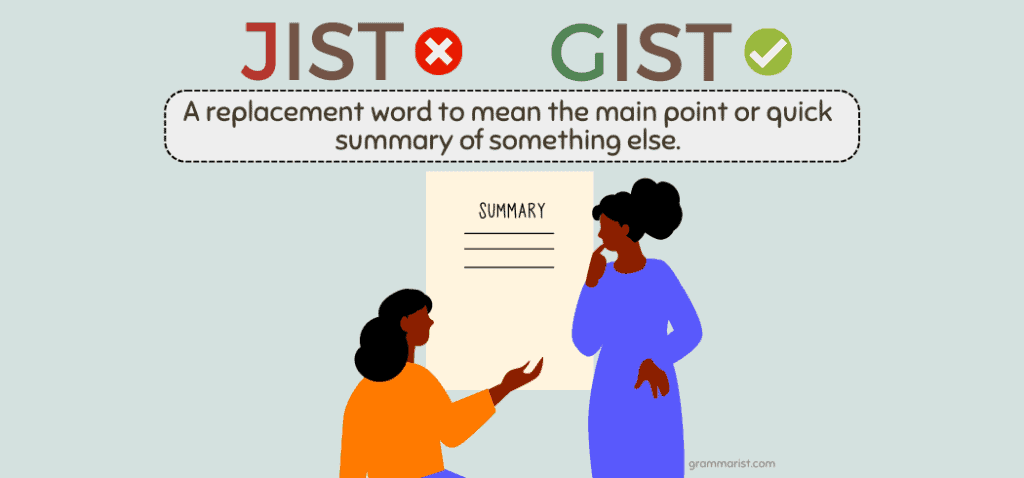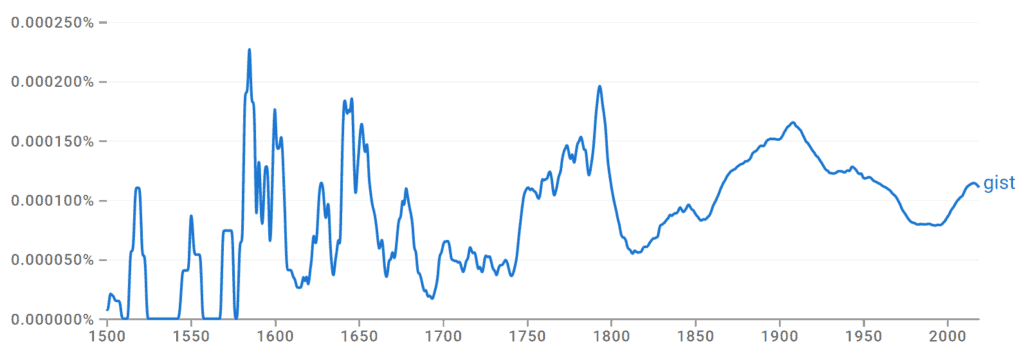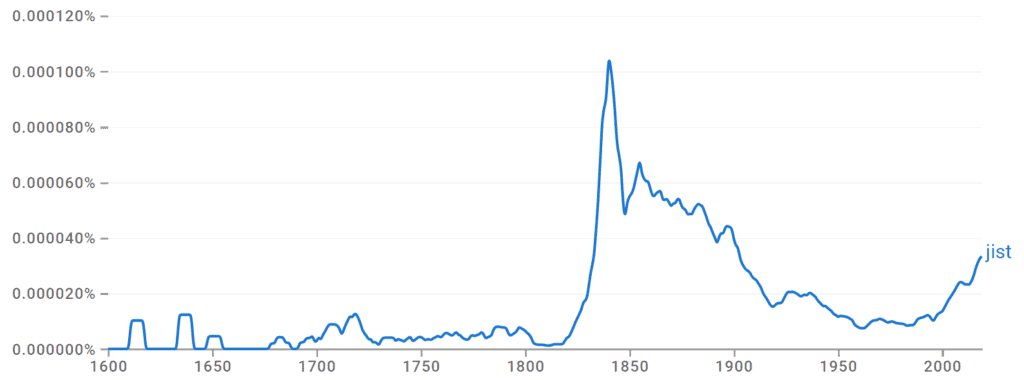The English language has many nuances that can confuse people attempting to make their writing sound clear and concise to an audience.
Because of this, I write a lot about homophone pairs or words that sound the same but are spelled differently. And there is a good reason to do so. Homophones are among the most confused words in English for language learners and new writers.
The pair that we are looking at today, gist and jist, are easy to tell apart – mainly because one isn’t actually a word. Let’s take a closer look at their use so you can be sure to get it right each and every time.
What’s the Difference Between Gist and Jist?

Gist is used as a replacement word to mean the main point or quick summary of something else. It can also be used to refer to the grounds on which a legal action lies.
Jist is an incorrect phonetical spelling of gist. Jist also can be used as a phonetic spelling of the word “just” when said with an American Southerner accent.
What Does Gist Mean?
Gist is a noun that means a summary of something more detailed or the main point of a focused conversation. It also is used in a legal manner to mean the grounds for legal action.
The Origin of Gist

The origin of gist lies in a French term, cest action gist, meaning “this action lies” and that there are grounds to proceed with legal action. It is an old word that originates from Latin (jacere, meaning “to lie”) but was adapted into Anglo-French during the 17th Century.
Using Gist in a Sentence
Gist is a noun and is always preceded by the definite article “the” when used in a sentence.
- Although the translation is not 100% accurate, you get the gist of its meaning when read in context.
- After reviewing the summary of the media release, it provided enough of the gist of the segment, so we didn’t have to watch the entire recording.
- Although I needed to provide more directions, my students got the gist of the project final, so they could start brainstorming ideas.
What Does Jist Mean?

Jist is not a word. For as long as gist has been used in English, it has been misspelled using phonetic reasoning. Although jist is often confused with gist without losing the meaning of the word, it is incorrect, and the phonetic spelling should be avoided.
However, dialog is an excellent way to build characterization in writing using local accents, called dialect. Jist is a common pronunciation of the word “just” throughout the Southern United States.
For example, Mark Twain’s most famous writings are set in the American South and he is known for his addition of dialect. In his short story, The Experience of the McWilliamses an account of one of these experiences is related through the sentence, “My eye was jist a-blazin’!”
Let’s Review
Gist is a noun that is used to describe the main point of something more focused or detailed. It always is proceeded with the definite article “the” in both speech and writing.
Jist is a misspelling of the word gist and shouldn’t be used. The only time you may see jist used in an acceptable manner is if it is used as a dialect to highlight an accented version of the word just.

Comments are closed.